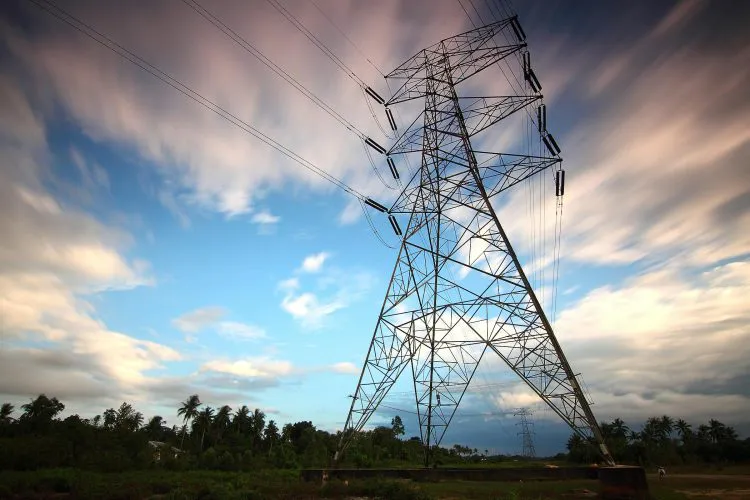Cryptocurrency Mining Opportunities for Western Canada’s Energy Industry

Authors: Brady Chapman, Ken Tennenhouse
The world has paid significant attention to the cryptocurrency industry over the past year. Bitcoin, one of the most popular cryptocurrencies, hit multiple all-time highs in 2021. Despite the known volatility of cryptocurrencies, interest from potential investors keeps growing as the institutional adoption of cryptocurrencies continues.
Cryptocurrencies are produced and introduced into the market through cryptomining, a highly complex and energy-intensive process that requires powerful computer processors with high electricity consumption. The growth in cryptomining has resulted in a significant increase in global energy consumption – with some raising concerns about how cryptomining aligns with
net-zero targets.
Canadian Prospects
China has long been a hotbed for cryptomining operations. However, in September 2021, China banned all cryptocurrency transactions and cryptomining, citing concerns about the the stability of the country’s financial systems and cryptomining’s environmental impact. This policy decision caused many cryptominers to look for other, more suitable jurisdictions to conduct their mining operations.
Ranked sixth in the world as a top energy producer, Canada is in a unique position to benefit from cryptominers’ exodus from China. Compared to other leading energy nations, Canada offers cheap, clean and reliable energy. In addition, Canadian companies have an easier time getting listed on a stock exchange and Canada offers lower import taxes than the United States. Some predict Canada will likely be one of the top-three cryptomining hubs in the world over the next decade.
Western Canada, in particular, is an attractive option for potential miners. Not only are there fast-growing renewable energy industries that could supply power to cryptomining operations, but the oil and gas industry in Alberta and Saskatchewan also provides creative solutions to cryptominers’ growing demand for energy. Miners in Western Canada have begun setting up mobile power generation facilities on natural gas well sites to capture gas, convert it into electricity, and use this electricity to power their cryptomining processors on site.
Regulatory Compliance
In Canada, there is no national or provincial law broadly regulating cryptomining except for the general tax and securities laws as applicable. However, cryptominers seeking to set up operations in Western Canada are still required to navigate several regulatory regimes.
Alberta
The Alberta Utilities Commission (the “AUC”) is the main regulatory body that regulates power production and transmission in Alberta. As per the Hydro and Electric Energy Act, to operate a power plant, a company must obtain approval from the AUC, unless the power plant meets certain conditions to be exempt from this requirement. Several companies have sought to set up their operations under these exemptions.
Other relevant legislation includes the Electric Utilities Act and the associated Fair, Efficient and Open Competition Regulation, which require cryptominers to offer any power they produce to the power pool unless they meet certain exemptions. The Environmental Protection and Enhancement Act defines further approvals that must be obtained before operating a power plant. The Alberta Land Stewardship Act governs land-use plans for several regions in the province and introduces an additional layer of environmental compliance.
On August 19, 2021, the AUC Decision 26379-D02-2021 affirmed and expanded the regulatory requirements for natural gas cryptomining operations that were relying on statutory exemptions to operate by using power from a captured gas operation. The AUC crypto decision provided some welcome clarity to the industry on what would be required to operate under a statutory exemption.
Other Western Provinces
In British Columbia, Saskatchewan and Manitoba, major new electrical loads require approval by the local utility. For example, in 2021, SaskPower spokesperson Scott McGregor stated that a large-scale cryptocurrency miner would need approval from SaskPower, in the same way that any large-usage customer would. He also noted that smaller operations, such as a couple mining computers in someone’s garage, may result in higher power bills, but would not necessarily have many other consequences. The Power Corporation Act governs SaskPower and has associated regulations that would apply, like the Power Corporations Regulations.
Timing is an important consideration for bitcoin developers when planning their operations. Before hooking up a major new electrical load, the local utility will require technical studies to assess the impact of the new load on the electrical grid. If supplying a new facility with power will entail a significant financial investment by the utility, developers can also expect discussions about funding and security arrangements.
The location of the cryptomining operation may also have an effect on the rules that would apply. For example, locating a cryptomining facility on First Nations reserve land means that federal and First Nation regulations would apply, rather than provincial laws. Canadian law also requires prior consultation with Indigenous communities on any development that could affect those communities.
Cryptomining Presents an Exciting Opportunity for Western Canada
The growing cryptocurrency industry and China’s crackdown on cryptomining operations in 2021 has created exciting opportunities for Western Canada’s energy industry moving into 2022. Canada offers attractive and competitive options to provide cryptominers with cheap, clean and reliable energy.
This past year has shown that securing the necessary energy for a large scale operation remains complex, even though Western Canadian regulators are attuned to cryptomining opportunities. Cryptominers should seek out legal advice to navigate the process when setting up their operations in 2022 to ensure that their projects proceed smoothly.
This article is part of The Energy Playbook: 2021 Year in Review which highlights key developments in Western Canada throughout the past year and discusses some of the risks and opportunities for businesses. Download the FREE e-book.
Note: This article is of a general nature only and is not exhaustive of all possible legal rights or remedies. In addition, laws may change over time and should be interpreted only in the context of particular circumstances such that these materials are not intended to be relied upon or taken as legal advice or opinion. Readers should consult a legal professional for specific advice in any particular situation.



